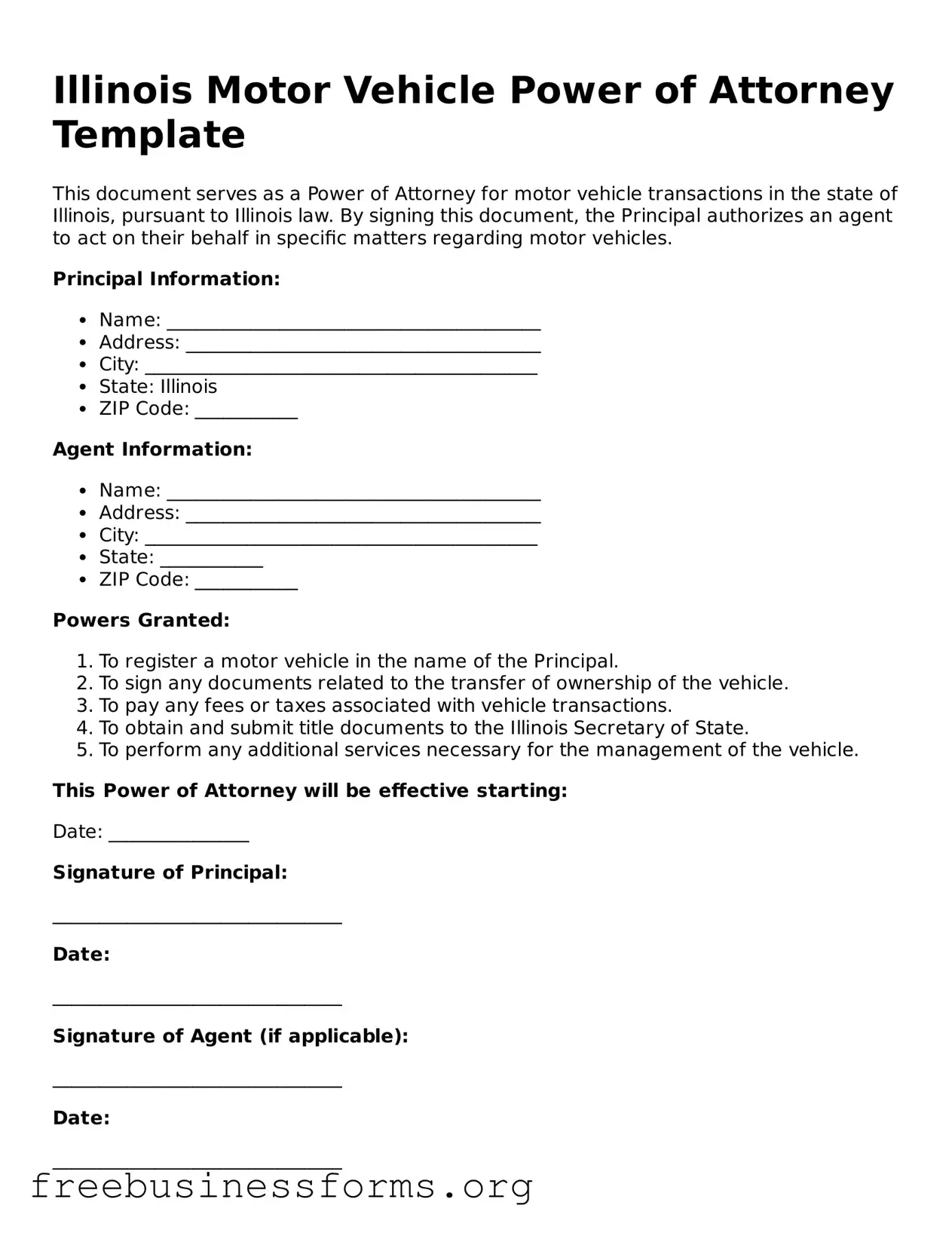Blank Motor Vehicle Power of Attorney Template for Illinois
The Illinois Motor Vehicle Power of Attorney form is a legal document that allows an individual to designate another person to act on their behalf regarding motor vehicle transactions. This form is essential for anyone needing to transfer ownership, register a vehicle, or handle other related matters without being physically present. By granting this authority, individuals can ensure that their vehicle-related affairs are managed efficiently and effectively.
Open Form Here

Blank Motor Vehicle Power of Attorney Template for Illinois
Open Form Here

Open Form Here
or
↓ PDF File
Quickly complete this form online
Complete your Motor Vehicle Power of Attorney online quickly — edit, save, download.